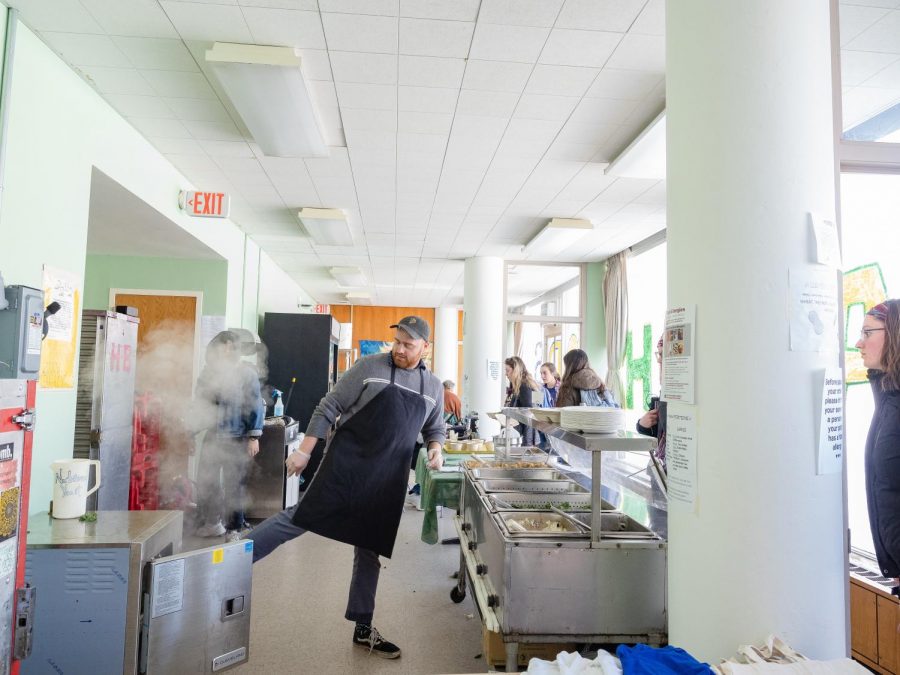In today’s world, consumers are focused on the latest and greatest technologies, and technology-makers are eagerly attempting to capitalize on that market by devising strategies to implement it in classrooms on college campuses nationwide.
Amazon and Apple have created two new “smart pads” – the Kindle, from Amazon, and the iPad, from Apple. Though still new inventions, both the Kindle and the iPad are already gaining in popularity on college campuses because of their effectiveness, their “greenness” and their multi-faceted capabilities. On first impression, the products seem great – an eco-friendly way to hold all your textbooks, like one simple invention so you won’t have to lug around five different books for five different classes that you’ll likely never actually use.
Through cutting down on paper, the smart pads bill themselves as part of the green revolution. Amazon claims that either one of its two products can hold anywhere from 1,500 to 3,500 books, while the iPad’s storage memory ranges from 16 to 64 GB. For most college students, the sheer amount of memory space could save money on the number of textbooks a student would need to buy and could even reduce the amount of printed books worldwide. Both products boast their wireless compatibilities, so users have the ability to download any book at any time, anywhere in the world (For international customers, fees per book are slightly higher). But is an automated touch-screen textbook really comparable to hand writing notes? Is it easier or more rewarding to simply highlight sentences and phrases by hand? Students surveyed at Princeton University and Darden University complained that, unfortunately, the Kindle was not as user-friendly as they had hoped. Because it is electronic, some PDF files do not allow highlighting, underlining and note-taking in the margins; an inconvenience for college students typically expected to annotate their texts throughout semesters.
Some University of Massachusetts students said that even though they never tested the product, it could make it harder to remember information because of the inability to highlight important texts or underline useful quotes.
Freshman Laura Wojcik said she feels implementing digital technology for note-taking would not be as logical as one might think.
“I think it’s unnecessary when we already have books pretty much at our disposal,” she said.
Another UMass freshman, Hannah Hamilton, said that while she is open to the prospect of using such devices for academics, when it comes to studying, she might just be a traditionalist.
“The idea is cool, but I’m so used to writing in my books and hand-writing things that I don’t know if it would be useful to invest in one,” she said.
The cost of these products could be a hindrance. The initial cost of a Kindle is $259, while the price of an iPad is $499, and the cost to download each book would be $9.99. One possible drawback to purchasing books in this manner would be the inability to sell a book back, as there would be nowhere to sell it.
According to CollegeBoard.com, the average student can spend up to $1,000 on books per year, meaning students would have to buy a sizeable number of e-books before spending the same amount of money as they would on texts.
Even after explaining the cost benefit to investing in a smart pad, Wojcik and Hamilton adamantly agreed that they like their own way of taking notes.
“I like being able to copy from my textbook,” said Hamilton. “I like being able to highlight, write definitions next to words, make copies of the pictures. I learn better from having the hard copy in front of me.”
Emily Whalen, a freshman psychology and communication disorders double major, said she would be interested in buying her texts this way, as she feels she rarely uses the textbooks she purchases for her classes.
“A lot of the time, professors will put their lectures online. Some professors even tell you that you’ll never use the book in class so you don’t have to bother buying it. I only bought books for a few of my classes this semester,” she said. “If you plan it out the right way, it’s easy to split the cost of books among friends in the same classes, but with a smart pad, I don’t think it would be easy to share the learning material,” Whalen said.
Ashley Berger can be reached at [email protected].





